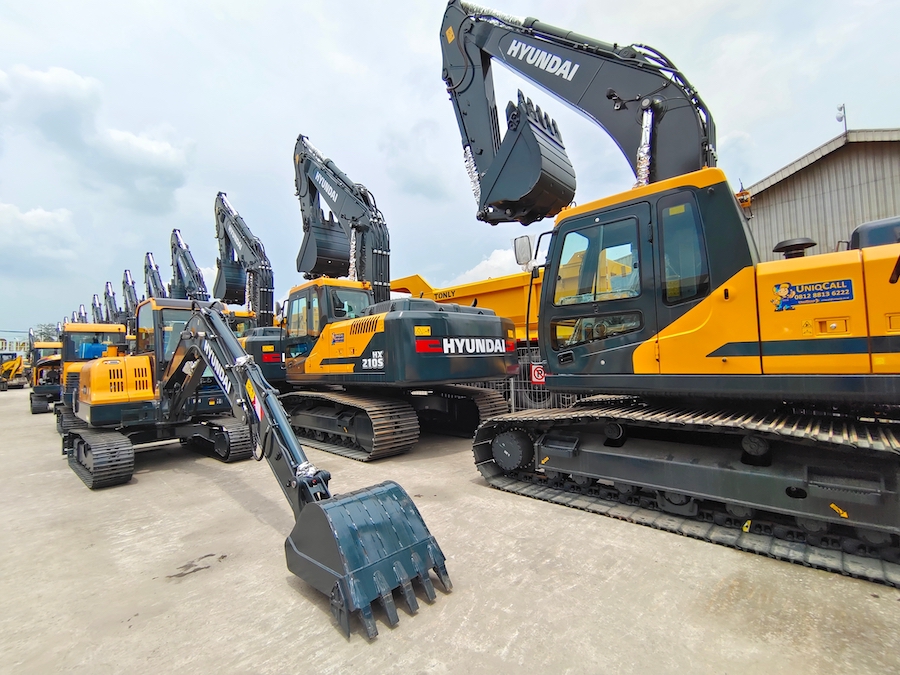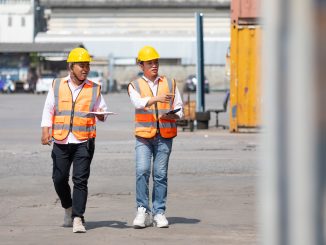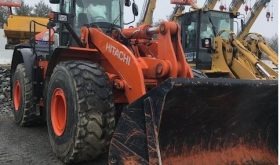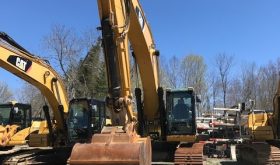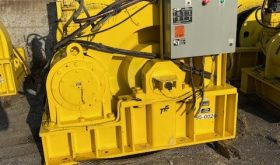
There’s a paradox to hiring employees for your construction company. You need workers to get your projects done. But some workers you hire to take on tasks that you no longer have time to do yourself. Yet the process of hiring the right employees for your construction company is in itself time consuming. In this article we’ll discuss finding, hiring, and keeping the right employees.
Be Desirable
The first step in the hiring process is to be a desirable company to work for. What kind of construction company would you want to be employed by? Obviously, you want to be paid a decent wage. You would probably like to have benefits such as health insurance, sick time, and vacation time. But you also want to work with the type of employer who treats you with respect, values your work, and provides opportunities to learn and grow.
Be Open
In a tight labor market such as we have today, you will need to be more open about the type of employee you hire. We would argue that you should do this in any case. Let’s put aside whether discriminating against certain groups of people is illegal (it is). When you are close minded about a prospective employee’s age, gender, race, religion, educational background, looks, zip code, accent, etc., you may be losing out on the opportunity to hire workers who could help your company thrive and grow. We all have biases. The trick is to be aware of your own biases and do everything you can to not let them get in the way of hiring great employees for your construction business.
What is a Good Employee?
When you say you’re looking for the “right” employee, what exactly do you mean? Each job requires a particular skillset. But a “good” employee is more than just their ability to swing a hammer or write effective marketing copy. Good employees:
- Show up on time.
- Arrive sober and ready to work.
- Create solutions; not make excuses.
- Can work independently.
- Do more than their job description, when needed.
- Are teachable.
- Can follow directions.
- Can work with others. Meaning they don’t bully, demean, or harass co-workers.
Nice Not Necessary
Think about the physical characteristics that are truly needed. If you use cranes and forklifts to move materials, is it really necessary to require the applicant to lift 50 pounds? Does an office worker really need to have a college degree?

Finding Employees
There are many ways to find good workers. These include:
Temporary Workers
When you find a temporary employee with a good work ethic, positive attitude, and desire to learn, consider them for other opportunities within your company.
Always Be Recruiting
Even if you don’t select an applicant, always thank them, and tell them you may contact them in the future if the right position opens up. Keep their application and your notes on file so you can contact them at a later date. Keep a database of prospective employees. For example, workers at companies you do business with (such as suppliers and subcontractors) that appear to have the right skills and attitude. Give them your business card and tell them to contact you if they’re ever looking to make a move.
Referral Program
Offer current employees incentives for bringing in a good worker. Offer some time of compensation after the employee they refer stays through an initial trial period.
Friends and Family
Talk to friends, family, and neighbors. They often know someone who is looking for work. Or is seeking a better job.
Go Local
Talk to local high schools and trade schools about offering internships. There may be local apprenticeship programs you can take advantage of. Or you may be able start your own.
Be Willing to Train
It’s nice to find an applicant who has the exact experience, background, skills, and education that you want. It just doesn’t happen that often. Consider training a hard working, personable candidate to do the job.
Trial Period
Hiring workers through temp or contract agencies gives you time to evaluate a worker’s competence, fit, and job performance before you commit. Online freelance agencies can provide creative talent for non-construction work such as administrative and marketing support.
Due Diligence
Take the time to make sure you truly are hiring the right employee. This includes:
Effective Interviewing
Pre-screening
Use telephone interviews to save time for both you and the prospective employee. For example, ask what salary they are expecting. Ask why they are job hunting now. The answers may make it clear that an in-person interview is not needed.
In-person interviews
Have a standard list of questions that you ask each prospective employee. Have open-ended questions such as “What do you like about the construction industry?” Or the classic, “Where do you see yourself in five years?” Then sit back and listen. You’re here to observe their behavior and get a sense of what they’re about. How they communicate; what’s important to them.

Check References
Ask for personal references from people unrelated to the prospective employee. You’ll ask their relationship and how long they have known each other. Then call the references. It’s best to speak to them over the phone rather than email. You want to hear their tone of voice; you don’t want them to have time to think about their answers. Confirm the relationship and how long they have known each other. Ask them open-ended questions – then sit back and listen. If it’s a former colleague, ask what it was like to work with the prospective employee. If it’s a friend, ask what they like best about them. You may be amazed at what people will tell you.
Background Checks
Once you are serious about hiring someone, run a background check. You want to make sure that there is nothing negative about the prospective employee that was not disclosed on their application.
Drug Screening
These days, it may not be unusual for someone to test positive for marijuana. It is legal in several states. We accept that it’s okay to drink alcohol outside of work – but not on the job. You may want to ensure that they are not testing positive for illicit drugs like cocaine. On the other hand, if operating machinery is not part of their job, it may not make sense to do a drug screening test.
Pre-employment Assessment Tests
Pre-employment assessment tests can measure aptitude. They can also assess behavioral risk.
Aptitude
The Wiesen Test of Mechanical Aptitude (WTMA) can be used to measure a prospective employee’s aptitude for learning how to operate and maintain equipment. The applicant would need to read at about a sixth grade level. The test is available in both English and Spanish.
Behavioral Risk
The Workplace Productivity Profile (WPP) is an example of a test used to assess whether the prospective employee exhibits “low-risk” behavior. It measures conscientiousness, productivity, reliability, and rule-adherence.
Temporary Workers
Construction companies often rely on temporary workers. But the work that they are doing for your clients is not temporary. Poor workmanship can cost lives in the construction industry. It can also cost the reputation of your business. Be as diligent in how you hire temporary workers as you are in hiring full-time direct employees.
Job Posting
You want to create a compelling job post that attracts anyone who may be a good fit for the position. Stick to the facts about the job and the company. Don’t ask for a level of experience and education that isn’t necessary for the position. Do you really need an equipment operator with a PhD in engineering? In addition to outlining the job responsibilities and the preferred experience and education level, include what’s in it for the applicant, such as:
Competitive Salary. Giving a salary range can both attract applicants – and repel those you can’t afford to hire.
Health Benefits. Describe the health insurance you offer including any health and wellness programs.
Training and Skills Development. Describe the training programs you offer and whether there are opportunities to learn and grow in the position.
Technology. Describing the technology you use can attract younger workers who are interested in working for cutting edge companies. It can also attract older workers who want to learn new skills.
Flex Hours. Offer employees flexible hours. Where it makes sense, allow workers to telecommute. The lockdown during the early days of the COVID pandemic proved to many employers that at least part of their team can be more productive working from home.
View the complete article here.
How can construction businesses attract and hire the right employees in a competitive labor market?
Emphasize being a desirable employer, offering fair wages, benefits, and a respectful work environment; consider being open-minded about diverse candidates to tap into a broader talent pool.
What are essential qualities of a good construction employee, beyond technical skills?
Good employees show punctuality, problem-solving skills, independence, versatility, a willingness to learn, and positive interpersonal qualities while maintaining a strong work ethic.


































